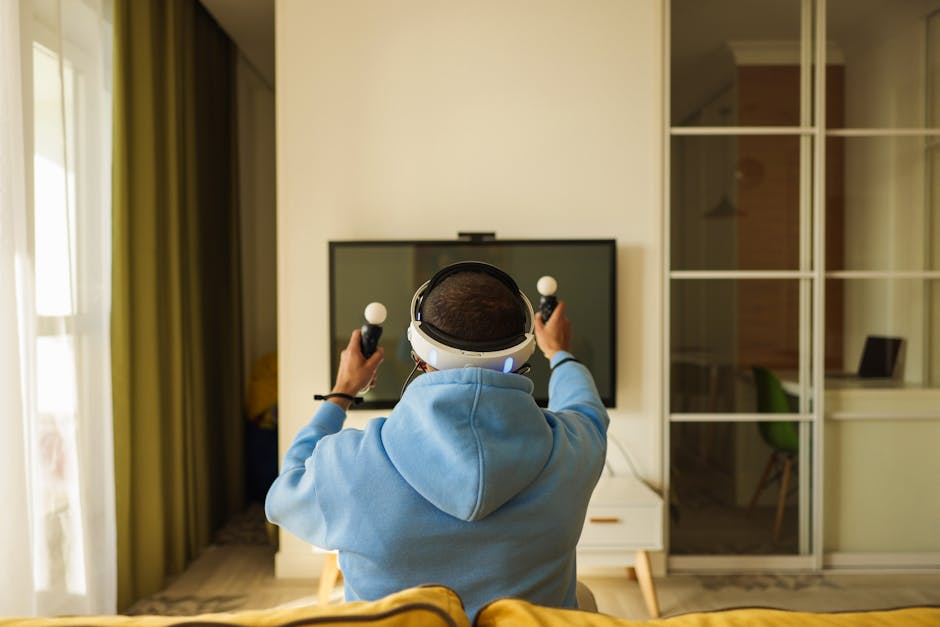Virtual Reality's Role in Shaping New Lifestyle Experiences
Virtual reality (VR) has transitioned from being a concept associated with science fiction to becoming an integral part of modern-day experiences. By creating immersive environments, it has reshaped how we interact with technology, influencing various facets of daily life. From entertainment to education and even healthcare, VR is redefining how individuals engage with their surroundings and connect with others. The growing accessibility of VR devices and software has made it possible for people from all walks of life to explore its transformative potential, fostering creativity and innovation in ways previously unimaginable.

Transforming Entertainment and Media Consumption
The entertainment industry has been one of the most notable beneficiaries of VR technology. It offers audiences the chance to experience media in ways that traditional formats could never replicate. Whether it's stepping into a virtual concert, participating in a 360-degree movie, or engaging in interactive gaming scenarios, VR provides unparalleled immersion.
Gaming is a prime example of VR's impact on entertainment. Platforms like Oculus and PlayStation VR have brought virtual worlds into homes, allowing users to physically interact with their gaming environments. Games such as "Beat Saber" or "Half-Life: Alyx" have demonstrated how VR can turn passive gameplay into an active experience. According to a report from Statista, the global VR gaming market is projected to reach $92.31 billion by 2027, highlighting its growing popularity.
Beyond gaming, VR has also revolutionized live events. Virtual concerts, such as Travis Scott’s performance in Fortnite, drew millions of viewers globally. Similarly, sports fans can now watch games from a player’s perspective or sit courtside without ever leaving their homes. These innovations are not just enhancing user experience but are also opening up new revenue streams for content creators and organizations.
Furthermore, VR is playing a pivotal role in creating empathy-driven storytelling through documentaries and films. Projects like “Clouds Over Sidra,” which places viewers in a Syrian refugee camp, use the immersive nature of VR to foster understanding and connection on complex global issues.
Revolutionizing Education and Training
Educational institutions and training programs are leveraging VR to create hands-on learning environments that go beyond traditional methods. From virtual science labs to historical recreations, the technology enables learners to explore complex concepts in an engaging manner.
One notable area is medical training. Students can practice surgeries or learn anatomy using VR simulations, reducing the risks associated with real-world practice while improving skill acquisition. For instance, companies like Osso VR provide detailed surgical training modules that allow medical professionals to refine their techniques.
Similarly, corporate training programs utilize VR for employee development. Industries such as aviation and manufacturing use simulation-based training to prepare workers for high-risk tasks without jeopardizing safety. Walmart has implemented VR modules to train employees in customer service scenarios and emergency response protocols within their stores.
The accessibility of such tools is expanding across academic levels. Platforms like Google Expeditions offer students virtual field trips to iconic landmarks worldwide, places they might never visit otherwise. Such applications not only make learning fun but also cater to diverse learning styles by combining visual and tactile elements.
Impact on Health and Wellness
Healthcare professionals are harnessing the capabilities of VR for treatment, therapy, and wellness improvement. Its applications range from aiding patients with mental health issues to helping those recovering from physical injuries.
For mental health treatment, therapists use VR as part of exposure therapy for conditions such as PTSD or phobias. Patients can gradually face anxiety-inducing situations within a controlled environment guided by their therapists. Research published in PubMed suggests that virtual exposure therapy significantly reduces symptoms for various psychological disorders.
Pain management is another area where VR has shown promise. Studies indicate that immersing patients in calming virtual environments during medical procedures can reduce pain perception and anxiety levels. Cedars-Sinai Medical Center has pioneered initiatives where patients use headsets to explore serene landscapes during treatments like chemotherapy.
On the fitness front, VR apps such as Supernatural combine workout routines with breathtaking virtual backdrops and personalized coaching. These platforms make exercising more engaging by turning it into an interactive experience rather than a chore.
The Future of Social Interaction and Lifestyle Integration
VR is changing how people connect socially by bridging geographical divides and enabling shared experiences in digital spaces. Virtual platforms like AltspaceVR or Meta's Horizon Worlds allow users to meet friends or collaborate with colleagues in fully customizable environments.
This shift has implications for remote work as well. Companies are experimenting with virtual offices where employees can interact as avatars, share presentations, and brainstorm ideas without relying solely on video conferencing tools like Zoom or Teams.
The integration of VR into lifestyle choices extends beyond work-life balance into personal interests too. For example:
- Real Estate: Buyers can virtually tour properties without traveling physically.
- Travel Planning: Platforms offer "previews" of destinations before booking trips.
- Shopping: Retailers let customers try on clothes or visualize furniture placements at home using AR/VR tools.
Despite these advancements, challenges remain regarding affordability and accessibility, both critical factors for widespread adoption globally.
| Application | Example | Impact |
|---|---|---|
| Gaming | "Half-Life: Alyx" | Enhanced player immersion |
| Healthcare | Cedars-Sinai Medical Center | Pain management innovation |
| Education | Google Expeditions | Diversified learning methods |
| Social Interaction | Meta Horizon Worlds | Redefined remote collaboration |
| Retail Shopping | IKEA Place App | Improved customer decision-making |
A Reflection on Virtual Reality's Expanding Horizons
The impact of virtual reality on lifestyle experiences is both profound and multifaceted. It bridges gaps between imagination and reality across entertainment, education, healthcare, and everyday activities while reshaping our understanding of human interaction in digital spaces. As this technology advances further into mainstream adoption, critical conversations about affordability, accessibility, ethical considerations around data privacy must accompany its development journey.
This article was generated by AI